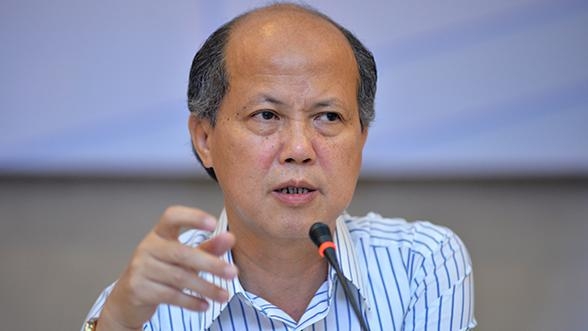CEO Group breaks ground on Novotel Cam Ranh Resort, cementing commitment to Vietnam’s luxury tourism landscape




The real estate market is undergoing a tightened credit and lack of supply.

"The market is hitting a new recession," said Nguyen Tran Nam, chairman of Vietnam Real Estate Association.
Nam points out that although the economy is still performing well but there are signs of slowing down compared to last year that will eventually have negative impacts on the real estate market.
Statistics revealed by Ho Chi Minh City Department of Construction shows that in the first quarter of 2019, the number of licensed real estate projects decreased by 67 per cent year on year. More than 150 had been halted for inspection for a long time before a majority of them have been allowed to go ahead recently.
The Vietnam National Association of Realtors has also reported a reduction of 70 per cent in the supply of apartments and villas in Hanoi and Ho Chi Minh City in the first quarter of 2019 compared to the end of 2018.
As a result, real estate transactions have fallen sharply, Nam said.
He forecasts that such a downward trend will continue this year and its impacts will be felt even more strongly by all stakeholders.
Nam nevertheless said that this recession has not arrived as a result of a real estate bubble which happened a decade ago.
The 2009 real estate crisis stemmed from an oversupply of properties with inflated prices while actual number of homebuyers was relatively small at the time.
Nam said the current situation is different, as there are not enough supply for homebuyers with real demand.
He noted that as Vietnam’s income per capita has reached over $2,500 and given the habit of locals that tend to save more in order to invest in real estate, the demand has thus soured over time.
While many expect the second half of 2019 to welcome numerous new property projects to be launched, the fact that these projects merely started their construction in 2018 would make such expectation impracticable, not to mention the construction time would normally take up a few years to complete.
Nam stated that the decline in supply might well be attributed to the lack of financial and land resources.
With access for real estate borrowing is currently controlled as per the central bank’s directions, financial backups for property projects have been cut short.
With regards to the land resource, the tightened regulations on the use of land has squeezed the land bank available for new projects, and also caused some old projects to be reviewed and inspected.
The insufficient property supply has now forced buyers rushing to invest in Mui Ne, Van Don and Phu Quoc, causing a so-called land fever in these areas.
Another trend also arrives where real estate developers tend to invest in provinces with cheaper land prices and easier approval procedures.
Nam therefore advised property businesses to be more cautious and maintain trust of homebuyers, in a bid to overcome the declined property supply situation.
Essensia Parkway makes significant impact in the high-end real estate market as 100 per cent of the limited collection was successfully registered within just a few hours at the launching event with the theme “Live lux-well, in a truly refined world”.
Essensia Parkway is set to mark a significant milestone as the first branded residences project in Ho Chi Minh City to be operated by WorldHotels – one of the finest portfolios of independent hotels and resorts within BWH Hotels.
Parc Hanoi marks Indochina Kajima's first office-for-lease project in its $1 billion investment plan in Vietnam.
While the average price of apartments in Hanoi has reached new heights, with supply primarily concentrated in the premium and luxury segments, there are still no signs of a price slowdown.
The supply of luxury apartments in central Hanoi is becoming increasingly scarce, pushing starting prices to new highs.